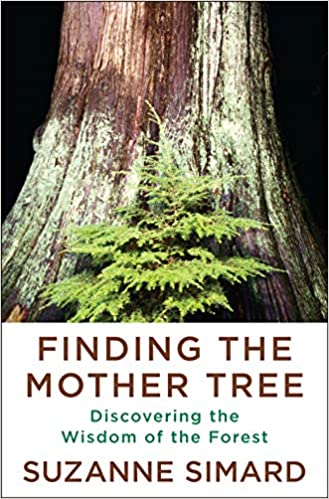Finding the Mother Tree
RNA Book Review
I’m writing to recommend a book. Finding the Mother Tree – Discovering the Wisdom of the Forest, Dr. Suzanne Simard.
Simard has put together summations and descriptions of her experiments and findings from her career as a forest ecologist that started as a child in a timber family working, living and rambling in the forests of inland B.C. I first was exposed to the workings of mycorrhizal networks as a student in the OSU Watershed Stewardship Program. I believe some of the course work was being based upon what Simard was publishing back even then. Her information is therefore not new news; but, having decades worth of experimentation and publication gathered together in sequence is valuable. And the conclusions and implications that Simard now articulates in summation are most timely. Conclusions about altruism, cooperation, competition, diversity, and patience.
Simard relates the nature of mycorrhizal networks, the vast variety of specialized and generalist fungi, the networks’ ability to pass communication, to pass nutrients, and the dramatic differences to be found where the networks flourish as compared to where they are weak or absent. She describes the fascinating interconnections fostered by these networks that exist between Mother Trees and kin, between species kin, between “strangers”, and between trees dying and those yet young. She presents her learnings on the relationship between dead salmon and the forest again facilitated by the mycorrhizal networks.
The book is, in my opinion, a bit weighted down by the autobiographicality of it. Along with a vast amount of research and learnings we also get to follow her love life, motherhood, her health, her conflicts with the timber industry and misogyny. But it is a minor complaint. This is a wonderful book if forests fascinate you like they do me. Or if you are just interested in the interrelationships abounding in nature and by what there might be to learn from nature about interrelationship, cooperation, and community.
A particularly fascinating little bit is where Simard discovers that, consistently, stressed or dying trees do not suck nutrients from the plants surrounding them in a bid to recover but rather accelerate the rate at which they pass nutrients outward helping newly established trees and the entire surrounding community to thrive.
Hope you enjoy,
Carl Axelsen
Portland
